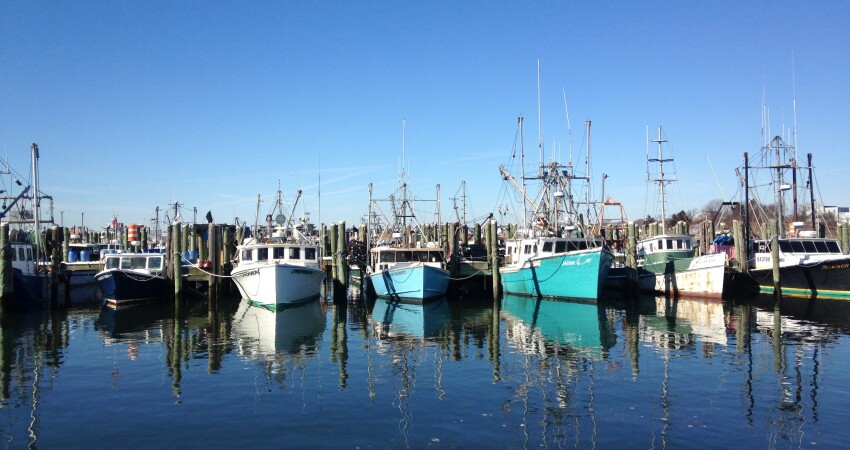In many coastal regions of the world, fishermen are seeing the effects of climate change. The species they target are shifting, and the weather they contend with is changing—and now, conflicts are emerging over efforts to build a low-carbon energy grid powered by offshore wind turbines.
To grapple with these and other issues, the Commercial Fisheries Center of Rhode Island and Fishery Friendly Climate Action held a one-day symposium aimed at finding solutions.
“Climate and energy issues are increasingly front and center in commercial fisheries,” stated Fred Mattera and Shaye Rooney, co-directors of the Commercial Fisheries Center, which hosted the event. “The industry is facing a fisheries management system that’s not prepared for warming-driven ecosystem change, a government-sanctioned repurposing of some of our most productive fishing grounds for renewable energy generation, and a dawning recognition that we may someday have to power our vessels on something other than reliable, affordable diesel fuel. If we don’t think strategically about these issues now, our industry won’t have a future.”
The permitting process for offshore wind farms was front and center for the fishermen. According to Sarah Schuman, executive director of Fishery Friendly Climate Action, Coastal Resources Management Council officials stated a desire to improve the offshore wind permitting agency’s communication with the fishing industry.
“The nine members of the council’s Fishery Advisory Board all resigned in September 2023 in protest,” says Schuman. “They stated in an open letter that the CRMC’s permitting process had become ‘political theater’ and was ignoring impacts from offshore wind development to the environment and the fishing industry.”
Schuman notes that several participants made references to a May 2023 CRMC permitting hearing that resulted in a 4-1 vote to approve the 704-megawatt Revolution Wind project south of Point Judith, R.I., after over ten hours of public comment, which many in the fishing industry felt was ignored.
While establishing fair representation in the wind farm permitting process was the most contentious issue of the day, other symposium sessions focused on solutions such as installing solar panels on the roofs of fishermen’s homes. Another session examined alternative power for fishing vessels. Schumann and Rhode Island fisherman Tim Rovinelli invited participants to outline a vision for powering fishing vessels in a post-diesel world.
Additional symposium sessions took place throughout the day, focused on updating fisheries science and management to become more climate-ready; preparing Rhode Island fishermen to engage with Rhode Island’s 2025 Climate Action Strategy, a statewide decarbonization planning process led by the Executive Coordinating Council on Climate Change; and collecting fishermen’s input to the Rhode Island Food Systems Planning for 2030 process led by Commerce Rhode Island.
The organizers said all the conversations initiated at the symposium will continue in the months and years to come.







